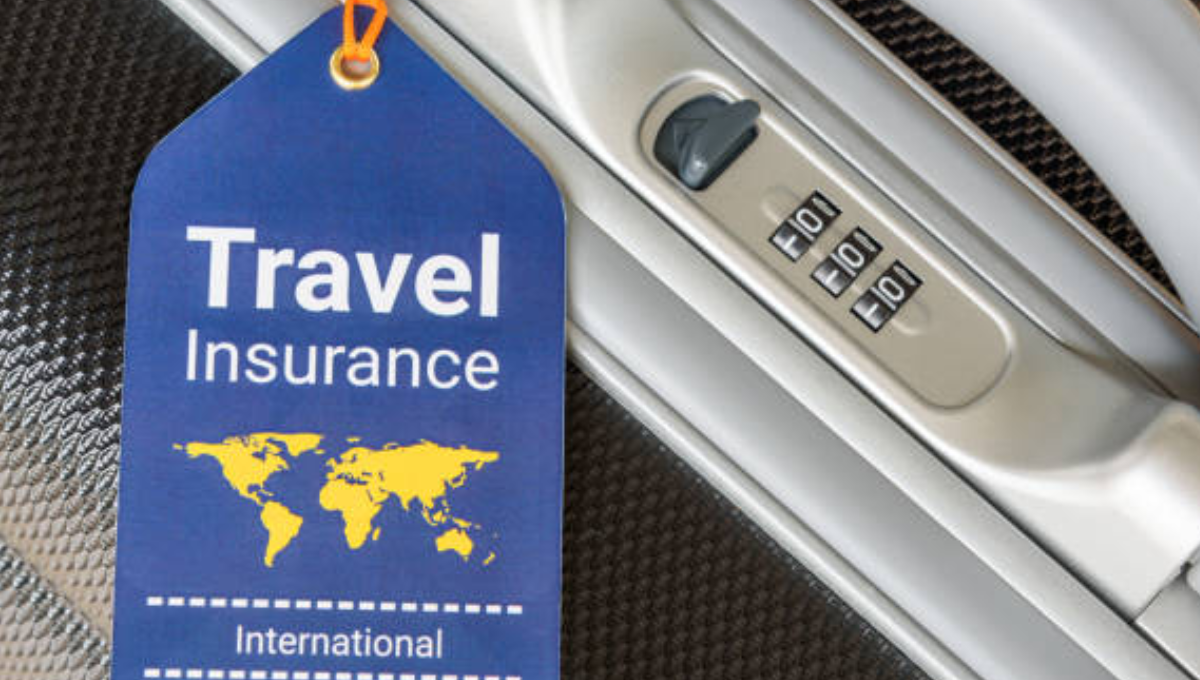Road trips spark a sense of freedom, weaving through scenic highways and hidden gems. The open road promises adventure, but it also carries risks like vehicle breakdowns, medical emergencies, or sudden trip cancellations. These unexpected events can turn a dream journey into a financial and emotional burden.
Travel insurance acts as a safety net, offering peace of mind and financial protection. From covering emergency medical expenses to reimbursing canceled plans, it ensures travelers stay focused on the journey, not the “what-ifs.” This guide dives into why travel insurance is a must for road trips, how it works, and tips for selecting the right policy.
With rising costs and unpredictable circumstances, understanding travel insurance is more critical than ever. Whether embarking on a cross-country adventure or a weekend getaway, this article equips travelers with the knowledge to make informed decisions and enjoy worry-free travels.
Why Travel Insurance Matters for Road Trips
Travel insurance isn’t just for international flights or exotic vacations. Road trips, while seemingly low-risk, come with their own set of challenges. From flat tires to sudden illnesses, the right policy can make all the difference.
Key Risks of Road Trips
Road trips expose travelers to unique uncertainties. Knowing these risks highlights why insurance is essential.
- Vehicle Issues: Flat tires, engine failures, or accidents can derail plans and rack up repair costs.
- Medical Emergencies: Injuries or illnesses in remote areas may require costly medical attention.
- Trip Cancellations: Unexpected events like family emergencies or severe weather can force cancellations.
- Lost or Stolen Items: Belongings left in cars or at rest stops are vulnerable to theft.
How Travel Insurance Mitigates Risks
A solid travel insurance policy addresses these challenges, offering tailored coverage for road trippers.
- Emergency Medical Coverage: Covers hospital visits, doctor fees, or ambulance services.
- Trip Cancellation/Interruption: Reimburses non-refundable expenses if a trip is canceled or cut short.
- Roadside Assistance: Provides towing, fuel delivery, or tire changes for vehicle breakdowns.
- Personal Property Protection: Compensates for lost, stolen, or damaged belongings.
Types of Travel Insurance for Road Trips
Not all travel insurance policies are created equal. Understanding the types available helps travelers pick the best fit.
Comprehensive Travel Insurance
This all-in-one option covers a wide range of issues, ideal for long or multi-destination road trips.
- Includes medical, cancellation, and baggage coverage.
- Often customizable to add roadside assistance or rental car protection.
Medical-Only Travel Insurance
Focused on health-related emergencies, this is suited for travelers with existing vehicle coverage.
- Covers hospital stays, doctor visits, and emergency evacuations.
- Typically more affordable than comprehensive plans.
Roadside Assistance Plans
These policies focus on vehicle-related issues, often bundled with auto insurance or standalone travel plans.
- Includes towing, lockout services, and fuel delivery.
- Best for travelers prioritizing car-related protection.
Comparing Travel Insurance Types
| Insurance Type | Best For | Key Coverage | Cost Range |
|---|---|---|---|
| Comprehensive | Long, multi-stop road trips | Medical, cancellation, baggage, roadside | $50-$150 per trip |
| Medical-Only | Travelers with existing auto coverage | Hospital visits, emergency evacuation | $20-$60 per trip |
| Roadside Assistance | Vehicle-focused travelers | Towing, fuel delivery, tire changes | $10-$40 per trip |
Key Benefits of Travel Insurance for Road Trips
Travel insurance offers more than just financial protection. Its benefits enhance the road trip experience in practical ways.
Financial Security
Unexpected costs can drain savings. Insurance covers expenses like medical bills or trip cancellations, keeping budgets intact.
- Example: A sudden hospital visit costing $5,000 is covered, saving travelers from out-of-pocket expenses.
Peace of Mind
Knowing help is available reduces stress. Travelers can focus on enjoying the journey without worrying about worst-case scenarios.
Flexibility for Changes
Road trips often involve spontaneous detours. Insurance allows flexibility, covering cancellations or itinerary changes due to unforeseen events.
Protection for Belongings
Laptops, cameras, or camping gear are at risk during road trips. Insurance compensates for lost or stolen items, ensuring travelers aren’t left empty-handed.
How to Choose the Right Travel Insurance Policy
Selecting the best policy requires careful consideration of trip details and personal needs. Here’s a step-by-step guide.
Assess Trip Details
Evaluate the trip’s length, destinations, and activities to determine coverage needs.
- Long road trips may need comprehensive plans.
- Short trips might only require medical or roadside coverage.
Compare Coverage Options
Review policies for key protections like medical, cancellation, and roadside assistance.
- Check limits and exclusions, such as pre-existing medical conditions.
- Ensure the policy covers all travelers in the vehicle.
Consider Budget and Value
Balance cost with coverage. A cheaper policy might lack essential protections, while expensive ones may include unnecessary extras.
- Look for customizable plans to avoid paying for unused features.
Read Reviews and Ratings
Research insurers’ reputations for customer service and claim processing.
- Check independent review platforms for real user experiences.
- Avoid companies with a history of delayed or denied claims.
Tips for Getting the Best Deal
- Purchase early to lock in lower rates and ensure cancellation coverage.
- Bundle insurance with existing auto or home policies for discounts.
- Compare quotes from at least three providers for the best price.
Common Mistakes to Avoid When Buying Travel Insurance
Even seasoned travelers make errors when choosing policies. Avoiding these pitfalls ensures maximum protection.
Overlooking Exclusions
Policies often exclude specific scenarios, like adventure activities or pre-existing conditions.
- Read the fine print to understand what’s not covered.
- Ask insurers to clarify ambiguous terms.
Buying Last-Minute
Purchasing insurance at the last minute may limit options or exclude cancellation coverage.
- Aim to buy at least two weeks before the trip.
Ignoring Policy Limits
Low-cost policies may have low coverage caps, leaving travelers underinsured.
- Ensure medical and cancellation limits match potential costs.
Skipping Roadside Assistance
For road trips, vehicle breakdowns are common. Skipping this coverage can lead to high out-of-pocket towing costs.
- Verify roadside assistance is included or add it as an option.
Key Facts and Findings
Recent data underscores the value of travel insurance for road trips:
- Cost of Emergencies: A single hospital visit in the U.S. can exceed $10,000 without insurance.
- Breakdown Frequency: 1 in 3 drivers experiences a vehicle breakdown annually, per AAA.
- Cancellation Costs: Non-refundable bookings can cost travelers 50-100% of prepaid expenses.
- Claim Satisfaction: 85% of insured travelers report faster claim resolutions with reputable providers, per a 2024 survey.
Real-Life Scenarios: When Travel Insurance Saves the Day
Real-world examples illustrate how travel insurance protects road trippers.
Scenario 1: Medical Emergency
A family road-tripping through rural areas faces a medical crisis when a child falls ill. Their insurance covers a $7,000 hospital bill and arranges transport to a nearby facility, saving them from financial strain.
Scenario 2: Vehicle Breakdown
A solo traveler’s car breaks down in a remote area. Their policy’s roadside assistance covers towing and repairs, preventing a $1,200 out-of-pocket expense.
Scenario 3: Trip Cancellation
A couple cancels their cross-country trip due to a family emergency. Their insurance reimburses $2,500 in non-refundable hotel and rental car bookings.
Closing Thoughts
Road trips weave memories that last a lifetime, but they come with risks that can disrupt even the best-laid plans. Travel insurance stands as a reliable partner, shielding travelers from financial losses and unexpected setbacks. From covering medical emergencies to ensuring roadside assistance, it transforms uncertainty into confidence.
Choosing the right policy requires understanding trip needs, comparing options, and avoiding common pitfalls. With the right coverage, travelers can hit the road knowing they’re protected, no matter what lies around the bend. The open road awaits—embrace it with the peace of mind that travel insurance provides.
FAQs About Travel Insurance for Road Trips
- What is travel insurance for road trips?
It’s a policy covering risks like medical emergencies, trip cancellations, or vehicle breakdowns during road travel. - Is travel insurance necessary for short road trips?
While not mandatory, it protects against unexpected costs, even on short trips. - Does auto insurance cover road trip risks?
Auto insurance typically covers vehicle damage but not medical emergencies or trip cancellations. - Can travel insurance cover rental cars?
Yes, many policies include rental car protection for accidents or breakdowns. - How much does travel insurance cost for a road trip?
Costs range from $10 to $150 per trip, depending on coverage and trip length. - What should a good policy include?
Look for medical, cancellation, roadside assistance, and baggage coverage. - Are pre-existing conditions covered?
Some policies cover them if purchased early, but exclusions are common. - How does roadside assistance in travel insurance work?
It provides towing, fuel delivery, or tire changes, often with 24/7 support. - Can multiple travelers share one policy?
Yes, comprehensive policies can cover all passengers in a vehicle. - How are claims processed?
Submit receipts and documentation; reputable insurers process claims within 7-30 days.







